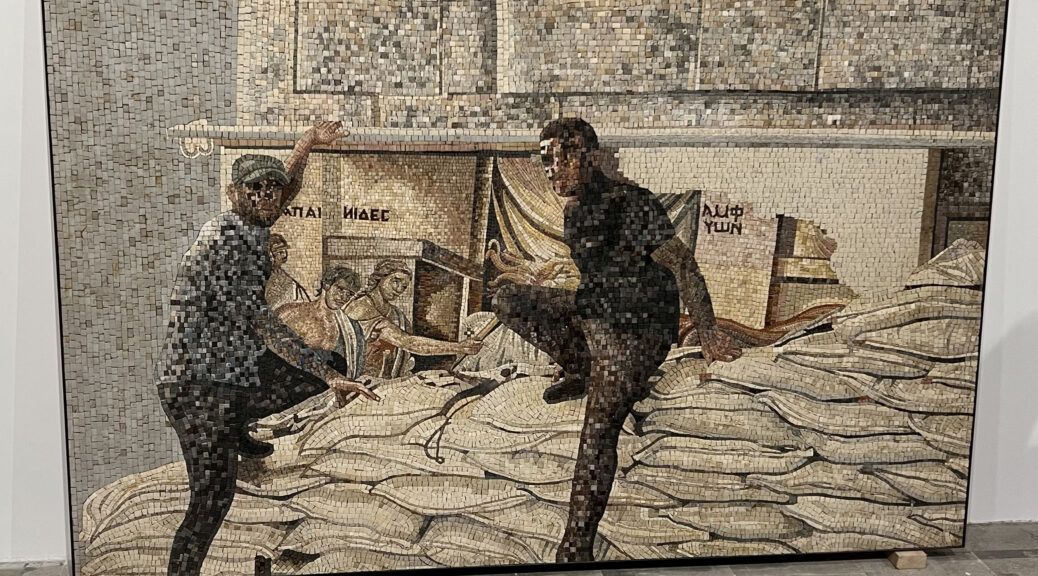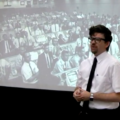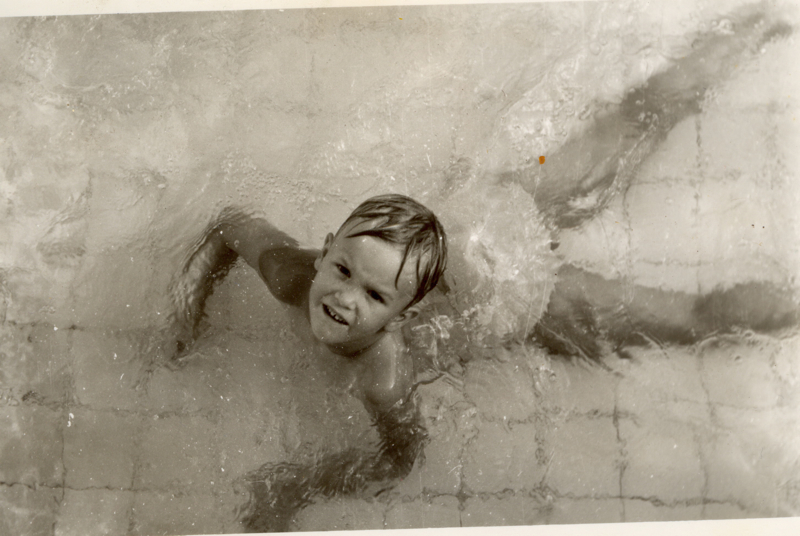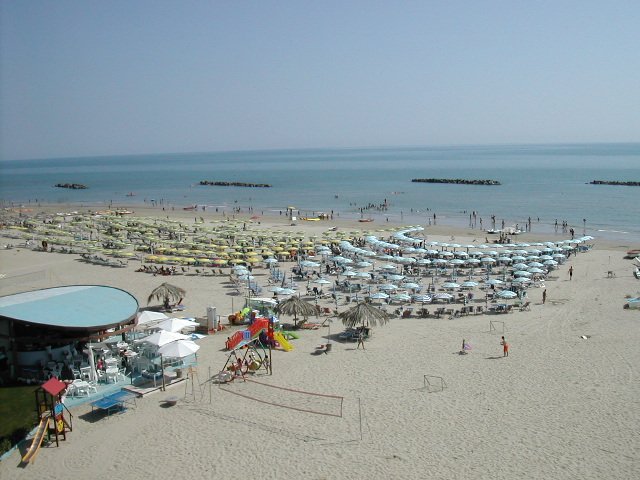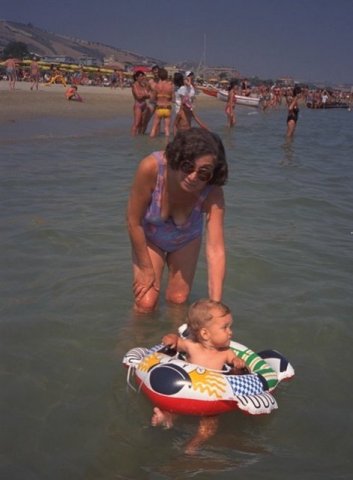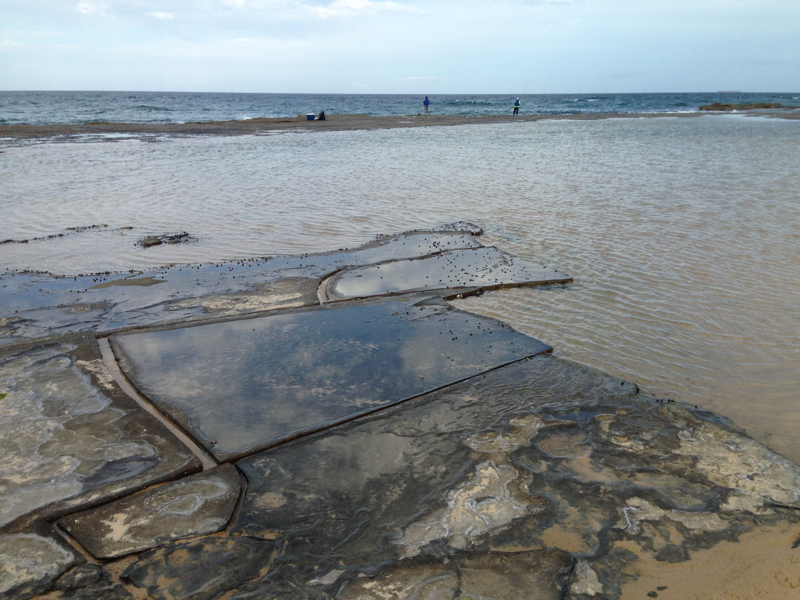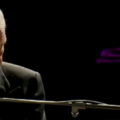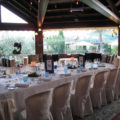I have never been much of a housekeeper, nor cared to be. I grew up in times and places where many people (not just wealthy ones) had live-in servants. My parents both had jobs, and someone else was paid to take care of cleaning, cooking, gardening, etc.
When we lived in the US during my late childhood/early adolescence, I learned how to wash dishes and clean a home – tasks that I was perfectly happy to relinquish to someone else when we later moved back to Asia. In college, again, I did for myself, and as a young wife and mother while my husband was in graduate school and then became a university professor, I continued to do most of the household tasks, with “help” from him. Help which I tried, unsuccessfully but unceasingly, to reframe in his mind as “doing his share”.
A few years after we moved to Milan, my own career got busy and I began traveling for work. Enrico did the cooking, childcare, and some cleaning during the times I was out of town, but my struggle for housework equality continued to cause stress in our marriage.
Eventually I was earning enough that I could take the solution that seemed obvious to me: hire someone else to do the housework, someone whose hourly wage was less than either of us could earn in an hour (as a contractor for a US tech company during the dot com boom, I was also paid by the hour – highly).
We had a succession of Sri Lankan immigrants to clean our place in Milan. Perhaps it seemed absurd to hire in someone to clean a three-room apartment (one that I was in all day, too – I worked from home when not traveling), but we ended up with a cleaner home, and one less thing to argue about.
Then we moved to a much bigger apartment in Lecco. I wasn’t working as much around the time that we moved (not by my choice!), but I hoped to return to full-time work, and had no desire to increase the hours I spent on cleaning.
We asked colleagues of Enrico’s and other acquaintances in Lecco for leads on cleaning help. Immigrants were far fewer than in Milan, but there weren’t many Italians willing to clean other people’s houses, either. Eventually, someone introduced us to Mimma.
Mimma (short for Domenica) and her husband Domenico were part of the south-to-north migration that had taken place in Italy in the 1970s. With just elementary schooling, they moved from Sicily to Lecco, where he worked all his career in a paper mill, and she cleaned and ironed for a living. Their children grew up in the north, but, like all Italians, the family kept close ties to its roots, returning to visit the extended family in Sicily every summer.
By the time we met, Domenico had retired from decades of physically gruelling work, and Mimma also wanted to slow down: rather than cleaning houses, she wanted only to do ironing (which she considered relaxing!). But she agreed to do a deep clean of the new rented apartment we were moving into – it had stood vacant for some time and was grimy.
I helped out a bit with that, but, as Mimma was horrified to learn, I really don’t know much about cleaning.
“Didn’t your mother teach you how to clean a house?” she asked indignantly.
I explained that, when I was small, we had servants in Thailand, then I hadn’t lived with my mother anymore, then I was in India… so, no, I had not had much opportunity to learn cleaning techniques, not up to Mimma’s standards. I didn’t mind her telling me (and said so), but I was never likely to be an enthusiastic house cleaner. After that first big clean was done, I begged Mimma to help me find someone who could come in and clean once or twice a week. She agreed that, until such a person could be found, she would do it.
After a few weeks of this, Mimma came in one day and said, in tones of mingled affection and exasperation: “I can’t find anyone else, so I’ve decided that – only for you – I will clean as well as iron.”
I was flattered, and pleased. Mimma was a fantastic housekeeper, but I also enjoyed talking with her, and she with me.
Which may have been unusual in Mimma’s experience of employers in Lecco. Although the factories of northern Italy had needed the labor of the southern migrants back in the 70’s, the northerners never liked the southerners, calling them terroni (“people of the earth” – peasants). Mimma told me that some of her employers over the years had been downright rude. I treated her as an equal, with respect and friendship – because I liked her, and because that’s how I treat people. It would not occur to me to be condescending to someone who’s working for me.
So, Mimma came in twice a week to clean and iron, and each day when she was ready for a break from cleaning, we’d have coffee and chat. Over the years to come, she invited us to coffees and meals at her own spotlessly clean home (she is a fantastic cook), and she and Domenico joined us at family gatherings such as this one (you can see them in the video).
I was open with her as I am with most people, and she felt free to ask personal questions about my life, America, and other places I had lived in. Although we were profoundly different in character and experience, we shared values in being honest, kind, and caring, about working hard and doing good things.
But there was one difference between us that Mimma didn’t expect.
One day early in our relationship, as we sat in the kitchen over coffee, Mimma said casually: “You’re Protestant, right?” As opposed to Catholic. Italians have little experience or knowledge of the variety of non-Catholic Christianity.
“I was baptized Catholic, to please my grandmother, but I’m atheist,” I said simply.
Mimma looked stunned. Clearly, it had never occurred to her that a white, western person could be non-Christian, let alone a non-believer. She was briefly silent, then left the kitchen to get on with cleaning.
After a few minutes, she popped her head back in the door.
“So you don’t believe in God? Any god?”
“No. I never have.”
She disappeared again.
She came back.
“But if you’re invited to a christening or a wedding in a church, would you go?”
“Yes, of course. Those are happy occasions that I want to celebrate with my friends.”
“Oh, ok.” She left again.
I was wryly amused. I’m not sure Mimma herself was a regular churchgoer, but, like many Italians, she considered being Catholic a fundamental part of her identity. She knew that others might have other brands of religion – Italy was seeing enough immigration by then to have daily exposure to many cultures and belief systems – but being completely without a religion was harder for her to fathom.
She soon got over the shock, and I’m not sure we ever discussed it again one way or another, but I never will forget that look of revelation on her face. Yes, there are people in the world who don’t believe in any god at all – and we’re just fine.

